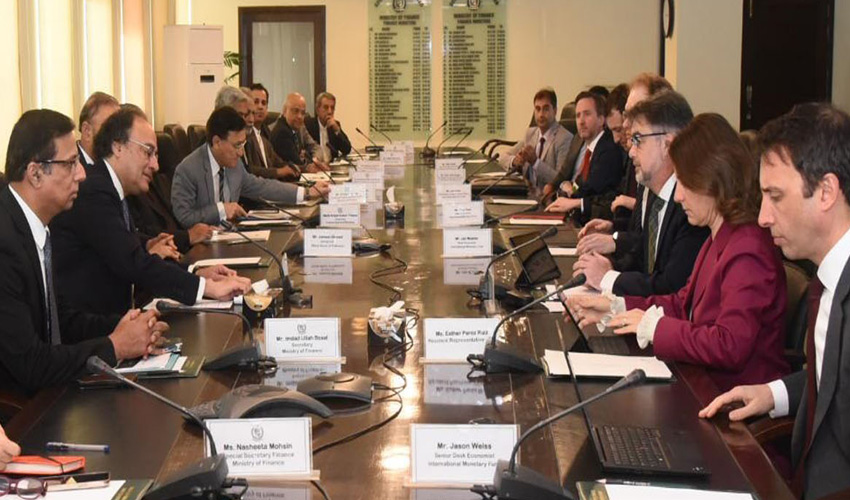ISLAMABAD: The International Monetary Fund’s (IMF) visiting mission on Thursday presented a series of tough conditions for securing new loan Programme, stressing the urgent need for comprehensive reforms within Pakistan’s economic framework .
Among the key demands outlined by the IMF is the freezing of revolving credit for electricity and gas, along with an immediate crackdown on theft in these sectors.
Moreover, the IMF, during the meeting, insisted on suspending local gas supply to power plants, highlighting the necessity for complete digitization within the Federal Board of Revenue (FBR).
Additionally, the IMF pushed for the rapid transition of Distribution Companies (DISCOs) into private sector management, emphasizing the need for a clearly defined timeline.
Expressing deep concern over the continuous rise in commodity prices within Pakistan, the IMF delegation questioned the disparity compared to global trends, urging Pakistani authorities to take decisive measures to control inflation.
The provision of subsidized gas to fertilizer plants was particularly contentious, with the IMF strongly advocating for its discontinuation. Concrete actions to tackle electricity and gas theft were also emphasized as essential prerequisites for the loan program.
In response to these demands, Pakistani authorities committed to leveraging technology to improve tax collection, reaffirming their determination to achieve the tax target for the current fiscal year.
Furthermore, assurances were given regarding the integration of the real estate, manufacturing, and retail sectors into the tax system, with a focus on enhancing revenue generation.
FBR Chairman Amjad Zubair Tiwana reiterated Pakistan’s commitment to achieving the tax target of 9415 billion rupees for the fiscal year, pledging to do so without the need for a mini-budget. The Finance Minister echoed this commitment, promising full cooperation with the IMF on the reform agenda.
The disbursement of the final installment of $1.1 billion depends on the successful completion of the second economic review, marking a crucial milestone in Pakistan’s economic journey.


